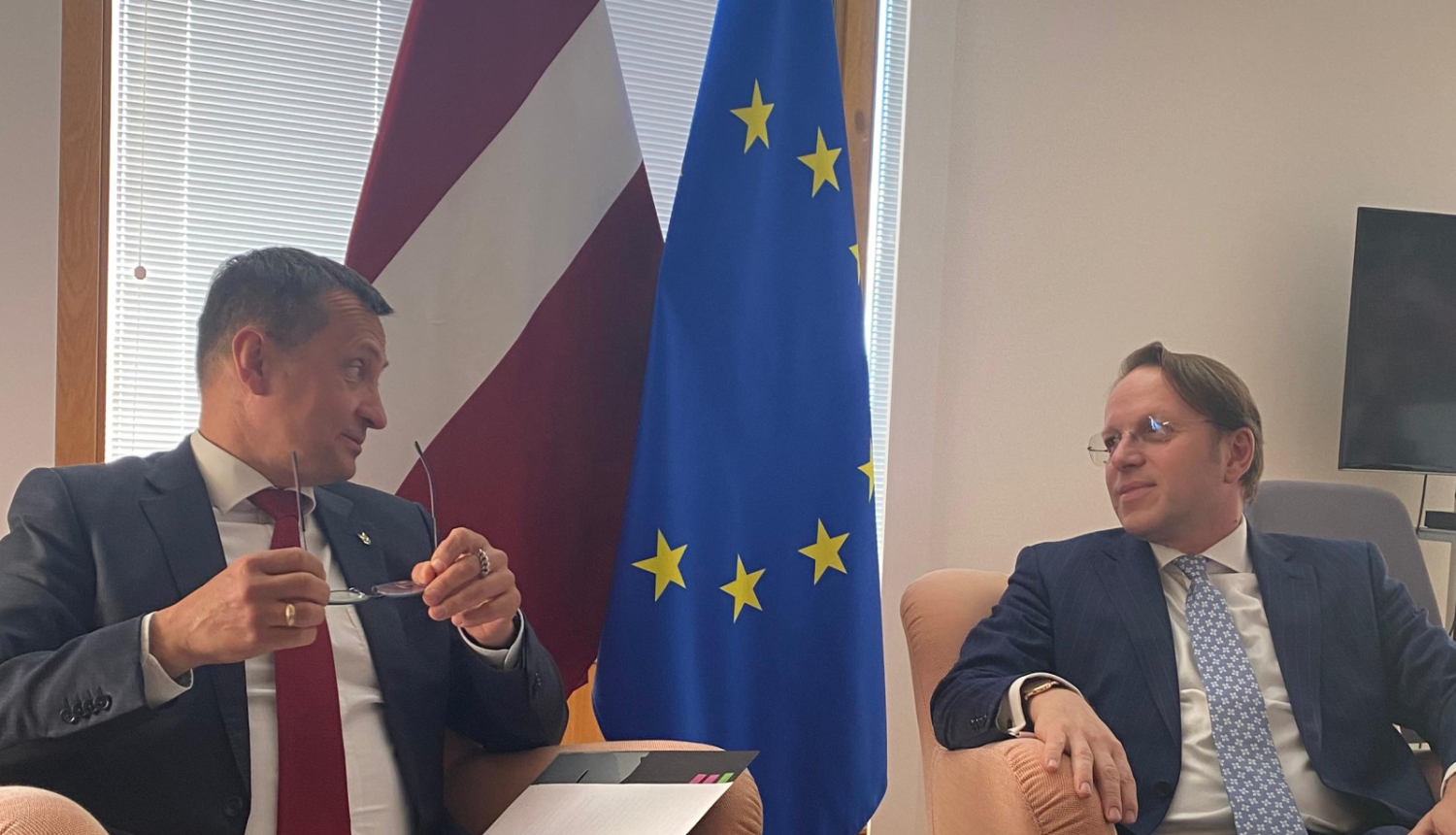On Monday, May 26, Minister of Agriculture Armands Krauze met in Brussels with European Commissioner for Health and Food Safety, Olivér Várhelyi, to discuss important issues related to food safety and animal welfare that are of particular concern to Latvia. The conversation addressed the maximum allowable levels of polycyclic aromatic hydrocarbons (PAHs) in smoked food products, animal protection during transportation, biosecurity in livestock farming, funding for veterinary and phytosanitary programs, and other topics.
The reduction of harmful substances in food is only acceptable if it is scientifically evaluated and justified. Latvian consumers are accustomed to and demand traditionally smoked food products with a specific taste, such as sprats and smoked cheeses. Stable sales volumes confirm consumer interest and demand. To adapt to EU market requirements and remain competitive, while also satisfying consumers, Latvia’s fish processing industry has invested significant financial resources into production. The European Commission’s 2024 proposal to reduce aromatic hydrocarbon levels would, if implemented, result in non-compliant products, particularly affecting sprat canning, which uses smoked sprats.
Armands Krauze stated: "According to our calculations, lowering the level of aromatic hydrocarbons in smoked sprats would render up to 13.5% of sprat canning production non-compliant. This would result in significant financial losses for the industry. Therefore, we firmly believe that the current levels of aromatic hydrocarbons in traditionally smoked products should not be revised until additional data on the products is available and a risk assessment of the safety of traditionally smoked products — currently being conducted by the European Food Safety Authority — is completed."
The Minister also expressed concerns to the Commissioner about the new EU proposal on animal protection during transport. Considering the vast geographical area of the EU, the strict requirement limiting live animal transport to no more than nine hours makes long-distance transportation practically impossible. Such a restriction would promote the inflow of live animals and animal products into the EU from third countries, where animals are often raised under poor welfare conditions.
The officials also discussed how the reduced EU co-financing rate for certain veterinary and phytosanitary programs in the current planning period could lead to insufficient disease and pest control. The Minister called on the Commissioner to secure additional funding for these objectives without placing an undue burden on national budgets, to mitigate the risk of infectious disease spread within the EU.



